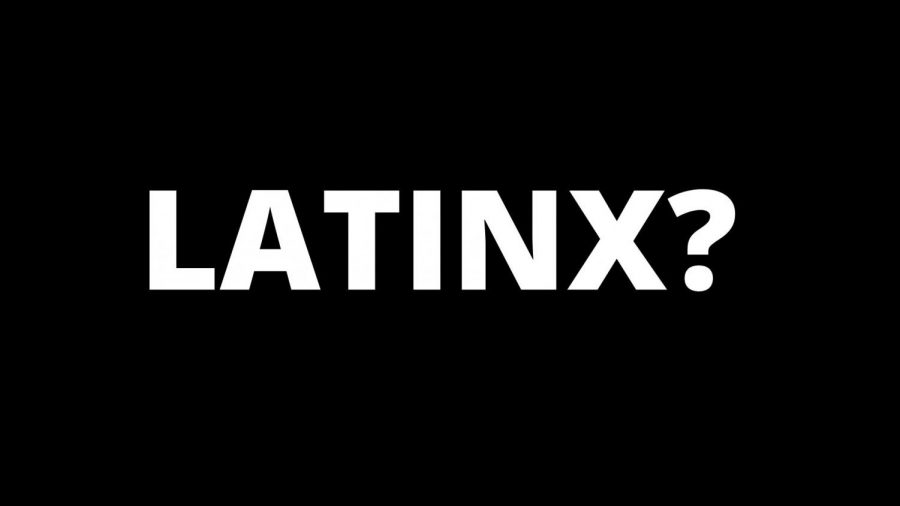OPINION: If you don’t already use ‘Latinx,’ now is the time to do so
An inclusive term to replace Latino and Latina. “Latinx” is seen as a gender neutral term that separates itself from the gendering of labels. Graphic by Shiavon Chatman
November 14, 2019
There are so many ethnic labels to keep up with that it can be hard to distinguish why any of them are important, but with the rise of “Latinx” in day-to-day dialogue, the significance of all these labels is about to get much more complex.
Latinx is a newer label that is used to be inclusive of non-binary and gender-nonconforming people that would normally be referred to as either Latino or Latina.
But before we jump into an overview of the term Latinx, let’s review what Latino means:
Latino is an ethnic label that refers mostly to geography, including people from Latin American countries like Cuba or Colombia. Latina is the female form of the word and Latino is the male form, as Spanish is traditionally a heavily gendered language.
But let’s not confuse Latinos with Hispanics, because they’re not the same thing.
Being Hispanic means you originate from a Spanish-speaking country, like Mexico or Spain. For example, people from Brazil are Latinos because they’re from a Latin American country, but they’re not Hispanic because they don’t speak Spanish, they speak Portuguese.
To simplify – Latino refers to geography and Hispanic refers to language.
OK, so now that we have some basic meanings established, let’s get into what Latinx is.
The term Latinx began its rise in the early 2010s when the LGBTQ+ community coined the term as a more inclusive way to identify members of the Latin population. Latinx is seen as a neutral term that separates people from the constant gendering that society puts on everything.
The question that presents itself when a word like Latinx becomes a phenomenon is “why does it matter what label we use to identify ourselves, they’re just labels?”
But that’s not exactly the case.
Our language, more specifically the Spanish language, has incredibly strict rules on giving certain items masculine or feminine traits, sometimes for no reason. Latinx is a broad term that lets anyone and everyone identify themselves without putting an emphasis on whether you’re a man or a woman.
In this case, you’re just a person.
In my own life, I never really focused very much on the use of the word and have always used Latina as a way to describe myself. Being cisgender probably played a lot into that, but I acknowledge why it’s extremely important to have these gender-neutral terms in our vocabulary.
As we watch this new influx of generations becoming comfortable in their own skin and identifying themselves in their own way, we should do everything we can to make sure they also feel comfortable in their own cultures.
We’re starting to enter the age where changing everyday labels to make them more inclusive is the new norm. Words like ‘policeman’ and ‘freshman’ are now ‘police officer’ and ‘first-year student’ to allow everyone a welcoming seat at the table.
There may be those that think “That’s so dumb. Why are we letting society put labels on anybody? We’re all the same.”
But when you’ve been labeled incorrectly your whole life or when your assigned gender has gotten in the way of you just being you, inclusive terms like this mean more than anyone can imagine. It could be the difference between pride in your culture or shame and neglect from your people.
Overall, whether or not you like the term Latinx and whether or not you like the idea of being “politically correct,” you shouldn’t be giving unsolicited opinions on how others choose to identify themselves.
If we’re not trying our best to include everyone in the dialogue, then why the hell are we even having this conversation?



























































































































Fiorella Noblecilla • Sep 21, 2020 at 5:55 am
First of all, I do think Latinx should be in everyone’s language because there are so many people who are non-binary in the latinx community. I’m not talking about transgender people because they would assign their gender to latina or latino but this isn’t about them this is about the people who are questioning their identity and people who identify as non-binary. Inclusion,and Loyalty is a big part in Hispanic culture so we should stick to our ideals and say Latinx. I’m Peruvian btw so I think I can say my opinion on this.
Juan Maldonado • Sep 18, 2020 at 11:07 am
When it comes to the term i believe that it came from good intentions but baizuos trying to enforce it is making me a Latino not ever want to use it, i get where you are coming from but you have to understand that this isnt approved by spanish speaking or hispanic countries in fact the believe it is offensive to the language, hell most of my family that lives in Colombia just laugh at the thought of the word. I just wrote this because i found out about the word just now and cant agree, this is offensive as hell.
Daniel • Nov 23, 2019 at 7:10 pm
Every generation gravitates to terms that they connect with that defines their particular views of the world as they see it and experiences as they live them. Growing up in the 1960’s in L.A. I identified with the term Chicano and still do to this day.Todays gendernation that identifies with Latinx is another step
to increase our understanding that La Raza is unique and adds to that uniqueness.So I say da’le gas.Go for. it.Go for what you know . Be proud of who you are and don’t let others try to define you.You walk the walk and talk the talk barefoot or in chanclas.Peace out.
J. Martinez • Nov 22, 2019 at 4:35 pm
The vast majority of the Latino community rejects this term. The only people who use this word are “woke” college progressives and ultra liberal white people. Stop trying to reinvent the wheel with this ridiculous term. It’s border line insulting.
J Diggs • Nov 14, 2019 at 5:37 pm
It’s nonsense to say “latinx” I believe. Even if they consider themselves “transgender” or identify as something else. Out of all those categories they’re going to be either male or female at the end of the day. Basic biology has make and female. No in between.